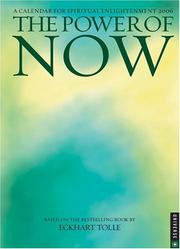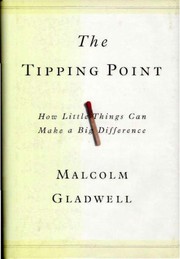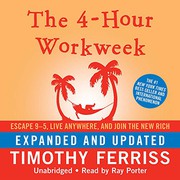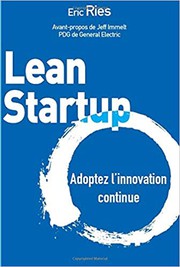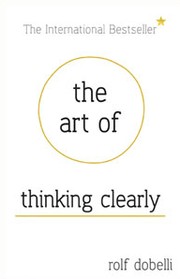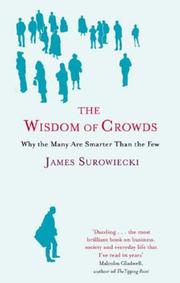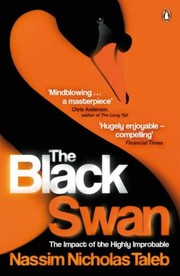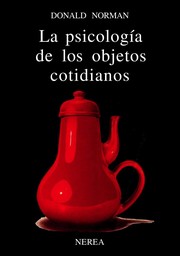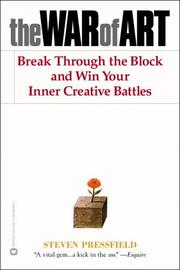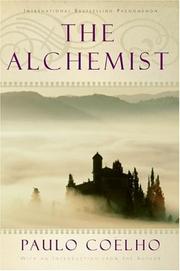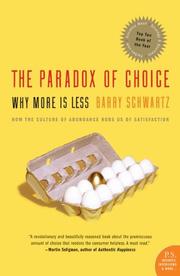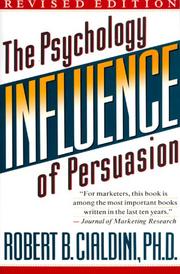Are you on the hunt for a book that will challenge your thinking and expand your mind? Look no further! Dive into the world of ideas with these 20 best books about ideas that will stimulate your intellect and ignite your curiosity. From philosophy to science, creativity to innovation, these ideas books will inspire, provoke, and enlighten. Get ready to embark on a thought-provoking journey as we explore the top books on ideas that will leave you pondering long after you’ve turned the last page.
Contents
- 1 20 Best Books About Ideas
- 2 Sapiens: A Brief History of Humankind
- 3 The Gene: An Intimate History
- 4 Thinking, Fast and Slow
- 5 The Power of Now
- 6 The Innovators: How a Group of Hackers, Geniuses, and Geeks Created the Digital Revolution
- 7 The Tipping Point: How Little Things Can Make a Big Difference
- 8 The 4-Hour Workweek
- 9 The Lean Startup: How Today’s Entrepreneurs Use Continuous Innovation to Create Radically Successful Businesses
- 10 The Art of Thinking Clearly
- 11 The Wisdom of Crowds
- 12 The Black Swan: The Impact of the Highly Improbable
- 13 The Innovator’s Dilemma: When New Technologies Cause Great Firms to Fail
- 14 The Design of Everyday Things
- 15 The War of Art: Break Through the Blocks and Win Your Inner Creative Battles
- 16 The Alchemist
- 17 The 7 Habits of Highly Effective People
- 18 The Happiness Hypothesis: Finding Modern Truth in Ancient Wisdom
- 19 The Paradox of Choice: Why More Is Less
- 20 Predictably Irrational: The Hidden Forces That Shape Our Decisions
- 21 Influence: The Psychology of Persuasion
- 22 Conclusion
- 23
- 24 Books on Spanish History: 2024 Update of the Best Titles
- 25 Unveiling the Best Alien Contact Books in this 2024 Update
- 26 Discover Best Saving Money Books: 20 Key Titles, 2024 Updated
20 Best Books About Ideas
Sapiens: A Brief History of Humankind
by Yuval Noah Harari
Sapiens: A Brief History of Humankind by Yuval Noah Harari is a captivating book about ideas that takes readers on a thought-provoking journey through the history of the human species. Harari explores the evolution of Homo sapiens from insignificant apes to rulers of the world, delving into the cognitive, agricultural, and scientific revolutions that shaped our present-day society. With a compelling narrative, the book challenges conventional wisdom and offers fresh perspectives on the development of human societies, cultures, and belief systems. Harari’s insightful analysis and engaging storytelling make Sapiens an enlightening and captivating ideas book that will leave readers pondering the nature of humanity and the forces that have shaped our existence.
The Gene: An Intimate History
by Siddhartha Mukherjee
The Gene: An Intimate History by Siddhartha Mukherjee is a captivating exploration of the profound impact of genetics on our lives. This enlightening book delves into the history, science, and ethical implications of genetics, offering a thought-provoking journey through the complexities of heredity, DNA, and the human genome. Through compelling storytelling and insightful analysis, Mukherjee examines the revolutionary discoveries and controversies surrounding genes, shedding light on the intricate interplay between nature and nurture. With its rich narrative and profound insights, The Gene is a remarkable book about ideas that challenges our understanding of heredity, identity, and the future of genetic research. Mukherjee’s masterful blend of science, history, and personal narrative makes this a must-read for anyone curious about the profound impact of genetics on humanity.
Thinking, Fast and Slow
by Daniel Kahneman
Thinking, Fast and Slow by Daniel Kahneman is a captivating exploration of the human mind and its decision-making processes. This thought-provoking book delves into the two systems that govern our thinking: the fast, intuitive, and emotional system, and the slow, deliberate, and logical system. With a wealth of research and real-life examples, Kahneman sheds light on the cognitive biases and heuristics that influence our judgments and choices.
This bestseller is a must-read for anyone interested in psychology, behavioral economics, and the intricacies of the mind. It’s an ideas book that challenges readers to reconsider their assumptions and understand how they make decisions. Whether you’re a student, professional, or simply curious about the workings of the human brain, Thinking, Fast and Slow offers valuable insights that will leave you pondering long after you’ve turned the final page.
The Power of Now
by Eckhart Tolle
The Power of Now, written by Eckhart Tolle, is a transformative book about living in the present moment. Tolle explores the concept of mindfulness and offers practical advice on how to quiet the mind and find inner peace. The book delves into the idea of letting go of past regrets and future anxieties, and instead focusing on the here and now. Tolle emphasizes the importance of being fully present in every moment, as a means to achieve a more fulfilling and joyful life. The Power of Now is a profound book about ideas that has the power to change the way readers perceive and experience the world around them. It’s a must-read for anyone seeking to cultivate a greater sense of awareness and gratitude in their daily lives.
The Innovators: How a Group of Hackers, Geniuses, and Geeks Created the Digital Revolution
by Walter Isaacson
The Innovators: How a Group of Hackers, Geniuses, and Geeks Created the Digital Revolution by Walter Isaacson is an enlightening book about ideas. It delves into the history of the digital revolution, chronicling the brilliant minds and collaborations that brought about the technological advancements we rely on today. Isaacson explores the interconnectedness of innovation, from the early days of computing and the invention of the internet to the development of personal computers and the rise of the digital age. Through engaging storytelling, he highlights the key ideas and breakthroughs that have shaped our modern world. The book celebrates the relentless pursuit of knowledge and the collaborative spirit that has fueled progress in technology. Whether you’re a tech enthusiast or simply curious about the history of innovation, The Innovators offers a fascinating journey through the minds and ideas that have transformed our lives.
The Tipping Point: How Little Things Can Make a Big Difference
by Malcolm Gladwell
The Tipping Point by Malcolm Gladwell is a captivating book about the power of small changes and their ability to create significant impact. This book on ideas explores the concept of how little things can make a big difference in various aspects of life, from marketing and social trends to the spread of diseases and the rise of crime rates. Gladwell delves into the idea that certain factors can cause an idea, product, or behavior to reach a tipping point, leading to widespread adoption or decline. Through engaging storytelling and thought-provoking analysis, Gladwell presents a compelling argument for the surprising ways in which small changes can have a major influence on society. Whether you’re interested in sociology, psychology, or simply enjoy a thought-provoking read, this ideas book is sure to leave you with a new perspective on the world around you.
The 4-Hour Workweek
by Timothy Ferriss
The 4-Hour Workweek by Timothy Ferriss is a groundbreaking book on ideas that challenges the traditional 9-5 work model. Ferriss offers a step-by-step guide on how to design a lifestyle that allows for more freedom, flexibility, and financial independence. He introduces the concept of “lifestyle design” and shares his personal experiences and strategies for achieving a work-life balance. The book is packed with practical tips on automating your income, outsourcing tasks, and optimizing your time to work smarter, not harder. Ferriss’s ideas book has inspired countless readers to rethink their approach to work and life, and has become a go-to resource for aspiring entrepreneurs and those seeking to escape the 9-5 grind. If you’re looking for a game-changing book about ideas that will revolutionize the way you work and live, The 4-Hour Workweek is a must-read.
The Lean Startup: How Today’s Entrepreneurs Use Continuous Innovation to Create Radically Successful Businesses
by Eric Ries
The Lean Startup is an insightful book on entrepreneurship and innovation, focusing on the concept of continuous innovation to build successful businesses. Eric Ries introduces a systematic approach to creating and managing successful startups in an age of uncertainty. He emphasizes the importance of testing ideas and adapting to feedback in order to create sustainable and profitable businesses. Ries challenges traditional business models and encourages entrepreneurs to adopt a lean, flexible approach to product development and customer feedback. The book provides practical insights and valuable lessons for aspiring entrepreneurs and established businesses looking to stay ahead in a rapidly changing market. It’s an essential read for anyone looking to revolutionize their approach to business and create a radically successful enterprise. This is indeed an insightful ‘book about ideas’ that will inspire and guide entrepreneurs on their journey to success.
The Art of Thinking Clearly
by Rolf Dobelli
The Art of Thinking Clearly by Rolf Dobelli is a captivating book on ideas that delves into the fascinating world of cognitive errors and logical fallacies. Dobelli offers a thought-provoking exploration of human decision-making and the common traps that lead us astray. Through engaging anecdotes and real-life examples, the book about ideas examines the various ways in which our minds can be prone to biases and errors, ultimately providing readers with valuable insights into how to think more clearly and make better decisions. This ideas book is a compelling read for anyone interested in understanding the complexities of human cognition and improving their critical thinking skills.
The Wisdom of Crowds
by James Surowiecki
The Wisdom of Crowds by James Surowiecki is a fascinating book about ideas that challenges the conventional wisdom that experts are always right. Surowiecki explores the concept of collective intelligence and argues that large groups of people are often better at making decisions and solving problems than individuals or small groups. Drawing on examples from diverse fields such as economics, psychology, and politics, Surowiecki demonstrates how the aggregation of diverse opinions can lead to remarkably accurate predictions and innovative solutions. This book on ideas offers valuable insights into the power of decentralized decision-making and the potential of harnessing the wisdom of crowds. Whether you’re interested in business, politics, or everyday decision-making, The Wisdom of Crowds is a thought-provoking ideas book that will change the way you think about problem-solving and decision-making.
The Black Swan: The Impact of the Highly Improbable
by Nassim Nicholas Taleb
The Black Swan: The Impact of the Highly Improbable by Nassim Nicholas Taleb is an ideas book that challenges conventional thinking about uncertainty and randomness. Taleb introduces the concept of “black swans,” events that are unpredictable, have a massive impact, and are often rationalized after the fact. He argues that these black swans shape our world more than we realize, and that our inability to predict them can lead to disastrous consequences.
Through engaging storytelling and thought-provoking analysis, Taleb encourages readers to embrace uncertainty and develop resilience in the face of unpredictable events. The book provides a fresh perspective on risk, decision-making, and the limitations of human knowledge. It’s a must-read for anyone interested in understanding the role of randomness and unpredictability in shaping our lives and the world around us.
The Innovator’s Dilemma: When New Technologies Cause Great Firms to Fail
by Clayton M. Christensen
The Innovator’s Dilemma is an influential book about innovation and disruption in business. Written by Clayton M. Christensen, it explores the challenge that successful companies face when new technologies emerge and threaten their existing business models. Christensen introduces the concept of disruptive innovation, where smaller, less established companies introduce new products or services that ultimately disrupt the market and lead to the downfall of larger, more established firms. The book delves into case studies across various industries to illustrate how companies can fall into the “innovator’s dilemma” by focusing too much on their existing customers and neglecting the potential of new, disruptive technologies. The Innovator’s Dilemma is a thought-provoking and insightful read for anyone interested in business strategy, entrepreneurship, and the impact of technological change on established industries.
The Design of Everyday Things
by Don Norman
The Design of Everyday Things by Don Norman is an enlightening book about the principles of good design and the psychology behind human interaction with everyday objects. As an influential book on ideas, Norman explores how design impacts our daily lives, from the frustration of poorly designed products to the joy of seamlessly functional ones. Through engaging examples and insightful analysis, he emphasizes the importance of user-centered design and the impact of usability on our experiences. This ideas book offers valuable lessons for designers, engineers, and anyone interested in the intersection of technology and human behavior. With its practical approach and thought-provoking insights, The Design of Everyday Things is a must-read for anyone curious about the psychology of design and its impact on our lives.
The War of Art: Break Through the Blocks and Win Your Inner Creative Battles
by Steven Pressfield
The War of Art by Steven Pressfield is an empowering book about ideas and creativity that delves into the internal battles that prevent us from reaching our full potential. Pressfield explores the concept of resistance, the force that keeps us from pursuing our passions and creative endeavors. Through anecdotes and practical advice, he offers strategies for overcoming resistance and unlocking our creative potential. This ideas book is a call to arms for anyone struggling to break through barriers and pursue their dreams. Whether you’re an artist, writer, entrepreneur, or simply someone striving to live a more fulfilling life, The War of Art provides valuable insights and inspiration to help you conquer your inner creative battles. It’s a must-read for anyone seeking to unleash their creative energy and achieve their goals.
The Alchemist
by Paulo Coelho
The Alchemist by Paulo Coelho is a captivating journey of self-discovery and personal legend. This timeless tale follows Santiago, a young shepherd who embarks on a quest to find a hidden treasure in the Egyptian pyramids. Along the way, he encounters a series of characters who impart wisdom and guidance, ultimately leading him to uncover the true treasures of life. The book is a profound exploration of destiny, spirituality, and the pursuit of one’s dreams. Coelho’s lyrical prose and thought-provoking storytelling make The Alchemist a transformative read for anyone seeking inspiration and enlightenment. It’s a book about ideas, dreams, and the universal truths that connect us all, making it a must-read for those in search of a deeper understanding of the world and themselves.
The 7 Habits of Highly Effective People
by Stephen R. Covey
The 7 Habits of Highly Effective People by Stephen R. Covey is a widely acclaimed book on ideas that has transformed countless lives. Covey presents a holistic approach to personal and interpersonal effectiveness, emphasizing principles such as proactivity, prioritization, and synergy. He introduces a paradigm shift, urging readers to focus on character ethics over personality ethics and to cultivate a “growth mindset” for continuous improvement. Throughout the book about ideas, Covey offers practical strategies for achieving effectiveness in various aspects of life, from professional success to meaningful relationships. His timeless wisdom and actionable insights make this ideas book a must-read for anyone striving to unlock their full potential and lead a more fulfilling life.
The Happiness Hypothesis: Finding Modern Truth in Ancient Wisdom
by Jonathan Haidt
The Happiness Hypothesis: Finding Modern Truth in Ancient Wisdom is an enlightening book about ideas that delves into the intersection of ancient philosophy and modern psychology. Jonathan Haidt, a renowned psychologist, explores the human quest for happiness through the lens of ancient wisdom from various cultures, including Greek, Buddhist, and Hindu traditions. Haidt examines ten great ideas from these traditions, such as the relationship between reason and emotion, the nature of consciousness, and the significance of virtue. By blending these timeless concepts with contemporary scientific research, Haidt offers readers a thought-provoking and insightful journey into the nature of happiness and well-being. The book provides a compelling exploration of human nature and offers practical wisdom for living a more fulfilling life. The Happiness Hypothesis is a must-read for anyone seeking to understand the complexities of the human mind and the pursuit of happiness.
The Paradox of Choice: Why More Is Less
by Barry Schwartz
The Paradox of Choice: Why More Is Less by Barry Schwartz is an engaging book about the concept of decision-making and its effects on our lives. In this thought-provoking book on ideas, Schwartz argues that the abundance of choices in today’s world can actually lead to increased anxiety, dissatisfaction, and decision paralysis. He delves into the psychological and societal implications of having too many options, and offers practical advice on how to navigate decision-making in a world of endless possibilities. Through compelling examples and insightful analysis, Schwartz challenges the conventional wisdom that more choices lead to greater happiness, and presents a compelling case for reevaluating our relationship with abundance. This ideas book is a must-read for anyone interested in understanding the complexities of human decision-making and the impact of choice on our well-being.
Predictably Irrational: The Hidden Forces That Shape Our Decisions
by Dan Ariely
Predictably Irrational: The Hidden Forces That Shape Our Decisions by Dan Ariely is an intriguing book about ideas that explores the fascinating world of human behavior and decision-making. Ariely, a behavioral economist, delves into the irrationality that often governs our choices, shedding light on the hidden forces that influence our decisions. Through engaging anecdotes and thought-provoking experiments, he challenges traditional assumptions about rationality and exposes the quirks of the human mind. This ideas book offers valuable insights into our decision-making processes, uncovering the irrational patterns that shape our behavior. With a blend of psychology, economics, and real-world examples, Predictably Irrational is a captivating exploration of the complexities of human decision-making, making it a must-read for anyone intrigued by the mysteries of the mind.
Influence: The Psychology of Persuasion
by Robert Cialdini
Influence: The Psychology of Persuasion by Robert Cialdini is a captivating book on ideas that explores the psychology behind why people say “yes” and how we can use these principles to become more influential. Cialdini delves into the six universal principles of influence, such as reciprocity, scarcity, and authority, and provides real-world examples to illustrate their power. This book about ideas is not only informative but also thought-provoking, as it challenges readers to reflect on their own behavior and the tactics used by others to persuade them. Whether you’re a marketer, salesperson, or simply interested in understanding the forces that shape our decisions, Influence is an ideas book that will change the way you think about persuasion and influence.
Conclusion
Exploring the depths of human thought and imagination, the 20 best books about Ideas offer a fascinating journey through the realm of intellectual curiosity. From philosophy to science, history to psychology, these books provoke thought, inspire creativity, and challenge our understanding of the world. Whether you’re seeking to expand your mind or simply looking for a new perspective, these books are sure to stimulate your intellect and ignite your passion for ideas.
Which Ideas book is best?
The best book on Ideas can vary with personal preference, but three widely recommended titles are:
- Sapiens: A Brief History of Humankind by Yuval Noah Harari,
- The Gene: An Intimate History by Siddhartha Mukherjee,
- Thinking, Fast and Slow by Daniel Kahneman.
Each offers valuable insights and could be a great starting point.
What are the best books to learn about Ideas?
For those looking to learn about Ideas, there is a wealth of literature that can provide a comprehensive understanding of the subject. Some of the most highly recommended books include:
- Sapiens: A Brief History of Humankind by Yuval Noah Harari,
- The Gene: An Intimate History by Siddhartha Mukherjee,
- Thinking, Fast and Slow by Daniel Kahneman,
- The Power of Now by Eckhart Tolle,
- The Innovators: How a Group of Hackers, Geniuses, and Geeks Created the Digital Revolution by Walter Isaacson,
- The Tipping Point: How Little Things Can Make a Big Difference by Malcolm Gladwell,
- The 4-Hour Workweek by Timothy Ferriss,
- The Lean Startup: How Today’s Entrepreneurs Use Continuous Innovation to Create Radically Successful Businesses by Eric Ries,
- The Art of Thinking Clearly by Rolf Dobelli,
- The Wisdom of Crowds by James Surowiecki
These books offer a range of perspectives on Ideas, covering various aspects and approaches to the subject.
What are the best books on Ideas?
The best books on Ideas include:
- Sapiens: A Brief History of Humankind by Yuval Noah Harari,
- The Gene: An Intimate History by Siddhartha Mukherjee,
- The Black Swan: The Impact of the Highly Improbable by Nassim Nicholas Taleb,
- The Innovator’s Dilemma: When New Technologies Cause Great Firms to Fail by Clayton M. Christensen,
- The Lean Startup: How Today’s Entrepreneurs Use Continuous Innovation to Create Radically Successful Businesses by Eric Ries,
- The Tipping Point: How Little Things Can Make a Big Difference by Malcolm Gladwell.
Each offers unique insights into the subject. While these books on the topic of Ideas are highly regarded, it’s important to note that any list of ‘best’ books is subjective and reflects a range of opinions.
What are the best Ideas books of all time?
Choosing the best Ideas books of all time can vary depending on who you ask, but seven titles that are often celebrated include
- Sapiens: A Brief History of Humankind by Yuval Noah Harari,
- The Gene: An Intimate History by Siddhartha Mukherjee,
- The Innovators: How a Group of Hackers, Geniuses, and Geeks Created the Digital Revolution by Walter Isaacson,
- The Lean Startup: How Today’s Entrepreneurs Use Continuous Innovation to Create Radically Successful Businesses by Eric Ries,
- The Wisdom of Crowds by James Surowiecki,
- The Innovator’s Dilemma: When New Technologies Cause Great Firms to Fail by Clayton M. Christensen,
- and The Black Swan: The Impact of the Highly Improbable by Nassim Nicholas Taleb.
Each of these books has made a significant impact in the field of Ideas and continues to be influential today.




